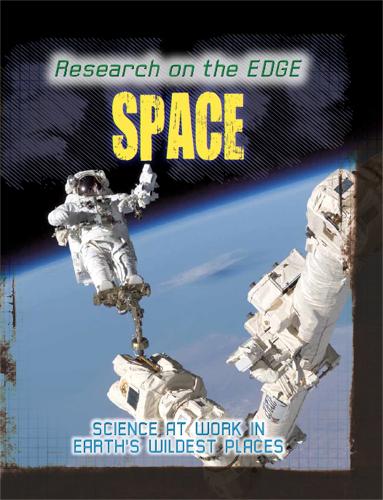
Research on the Edge: Space
(Hardback)
Available Formats
Publishing Details
Research on the Edge: Space
By (Author) Angela Royston
Hachette Children's Group
Wayland
13th February 2014
United Kingdom
Classifications
Children
Non Fiction
520
Physical Properties
Hardback
32
334g
Description
Can you imagine living and working in space It's the reality for some scientists, who inhabit laboratories in deep space, far above our planet.
Research on the Edge - Space Lab is a gripping look at the daily lives of these scientists, and the vital research they carry out in extreme conditions. Discover the difficulties of setting up a space lab and the challenges of supplying equipment and necessities to the workers. Children can read about the conditions scientists live in, from where they sleep to how they get into space, and some of the dangers they must avoid. Explore how research conducted in space can expand our horizons, increase our understanding of other planets, and expand our knowledge of the universe. It can reveal untapped resources, and lead to the development of new materials and technologies. Learn about the incredible technology that enables the scientists to live and work in dangerous conditions and how they are supported by teams of people working back on Earth. See how they attempt to live with as little impact on their environment as possible.Discover how scientists manage their data, and publish it in journals around the world, and see how their findings can affect the way we do things in our everyday lives. Find out about the international science community - where and why cutting-edge research is carried out, how it is paid for, and who owns the results. Research on the Edge - Space Lab is ideal for children age 9+, for geography and science projects, or simply as a great leisure read. Space is not the only place where scientists work in extreme conditions. Try reading about the Ocean Lab, the Rainforest Lab and the Polar Lab.Author Bio
Angela Royston has been writing information books for children for many years, and has written nearly 300 books. She writes about extreme weather, forensic science, animals and anything she can research - she enjoys finding out and writing about new things. She also visits schools to talk to children about writing, and runs creative science writing workshops. When she's not writing, she listens to a range of music, which includes some jazz, Mozart and Mahler, and enjoys playing tennis and walking.
